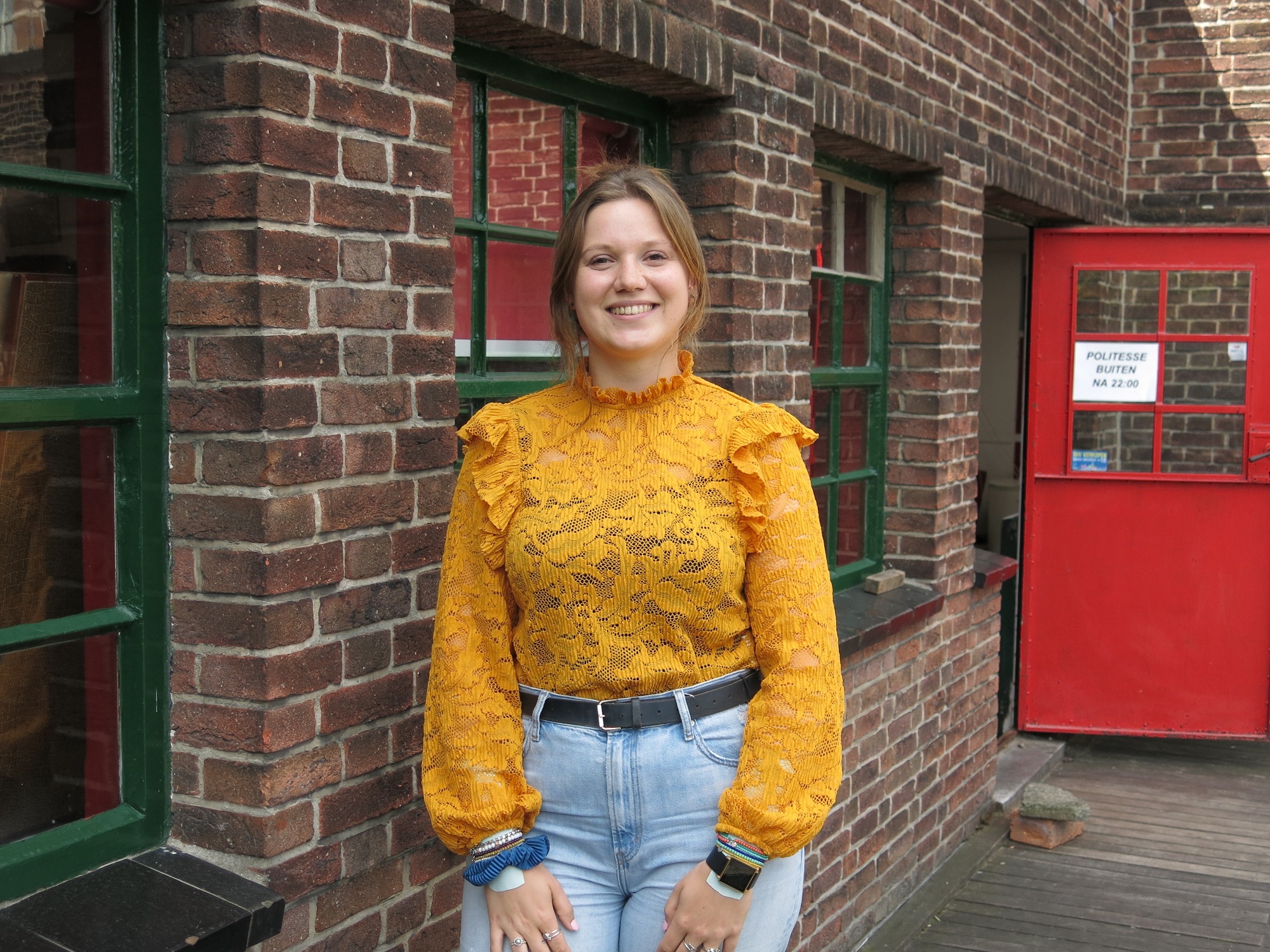Who are the people who study or work at TU Delft? We meet them in Humans of TU Delft. This time: Brechtje Krijvenaar plans the Ringvaart Regatta, a 100-kilometre rowing event.
Brechtje Krijvenaar: “A lot of teams do the race in order to raise money for a good cause. This year we have 150 boats so that's around 800 participants.” (Photo: Heather Montague)
English only
“I’m in the first year of a master’s degree in Strategic Product Design at the Faculty of Industrial Design Engineering. I have been part of Laga (TU Delft student rowing association, in Dutch) for five years now and this year I’m the President of the OC&C Ringvaart Regatta (in Dutch) organising committee. This is the 48th time the race will take place so it has been around for a long time. It is a rowing marathon of 100 kilometres that starts in Leiderdorp, continues north towards Haarlem and finally ends in Delft.
The event has grown a lot over the years and I think one of the most amazing parts about it is that anyone can participate. We have students, non-students, internationals, nationals, rowers, non-rowers, and also people with disabilities. For example, we have a team with impaired vision participating and I think that’s so amazing. And a lot of teams do the race in order to raise money for a good cause. This year we have 150 boats so that’s around 800 participants.
There is a lot of energy and excitement as we’re getting ready for the event, but I don’t feel really nervous because I trust my team. There are 10 people on the planning committee and everyone is doing their part and taking it seriously. It’s special because the whole event is organised by TU Delft students who volunteer. There is a lot of planning and we want everything to be perfect, or almost perfect because we don’t want any participants to get hurt or to run out of supplies like water or food.
‘One of the best parts is that students come together and build something like this’
For me, one of the best parts of this is that the students come together and build something like this. We’re creating a lot of memories and I think it’s so great to see that people really get into their role, they are so invested and we all develop through this process. In addition to the organising team there are also a lot of first and second year Laga members that volunteer for the event and it would not work without them. They really step up and ask what they can do to help and that’s great. We also work together with the municipalities where the race passes through and they give us permission to use the waters, to park cars there, and they have been thinking along with us.
This event is a rowing marathon, and that means that it’s just one team in each boat from start to finish. And 100 kilometres is a very long distance. Some boats that finish quickly do it in about 10 hours, but most boats take about 12 hours. They start at 6:00 and there are five stops along the route where people can take breaks if they need to. The stop at Leidschendam is mandatory because we don’t want people to get injured or risk their health. We will even have a masseuse available if participants want to relax and get a massage. The final kilometres will not be a breeze, but this makes it a bit easier.
We also have event sponsors (in Dutch) and we would be nowhere without them. OC&C Strategy Consultants is our main sponsor and they give us a lot of support and they always participate as well. This year we have a sponsor that will do a livestream as well. They will have a van driving along part of the route and they will have people doing interviews along the way as well. People can follow along and watch this online.
People can follow the race or watch in person at different points. It’s a lot of fun to watch at Leidschendam, which is about 10 kilometres away from here, and that is the last stop for the rowers. They need support and people cheering for them to complete the last kilometres before the finish in Delft. It’s interesting to know that the last 500 meters of the race is a sprint so they really have to push through to the finish. At the end of the day, we will host a party to celebrate the participants because rowing 100 kilometres is a very big accomplishment. So if people want to join the celebration, they can buy a ticket (in Dutch) on our website. We hope that lots of people will be there at the finish line to show support for the rowers and for what they have done.”
Want to be featured in Humans of TU Delft? Or do you know someone with a good story to tell? Send us an e-mail at humansoftudelft@gmail.com
Heather Montague / Freelance writer



Comments are closed.